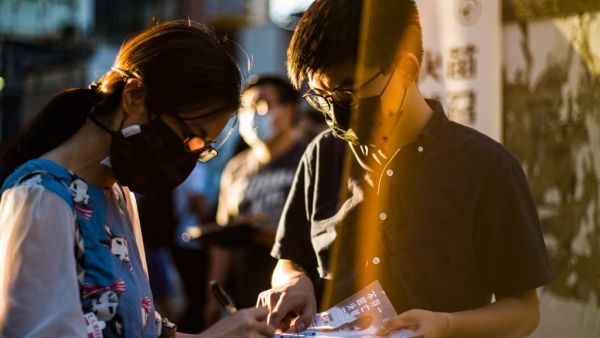China's top lawmaking body has announced a three-day session for the end of this month, a move that raises the possibility of the enactment of a national security law for Hong Kong that has stirred debate and fears in the semi-autonomous territory.
The official Xinhua News Agency said on Sunday that the Standing Committee of the National People’s Congress would meet from June 28-30 in Beijing.
The brief report did not mention the Hong Kong security law among several possible discussion items, but it could still be on the agenda or added at the meeting.
China released some details of the legislation late Saturday, heightening fears that the central government is tightening its grip on Hong Kong after months of anti-Beijing protests last year.
Under the draft, the central government would set up a national security office in Hong Kong that would collect and analyse intelligence and deal with criminal cases related to national security.
Hong Kong police and courts would maintain jurisdiction over criminal cases under the law, but it would allow Chinese authorities to exercise jurisdiction over “a tiny number of criminal cases ... under specific circumstances," according to a Xinhua report.
It did not provide any details on what the circumstances might be.
The timing of the upcoming legislative session is unusual, coming just one week after a three-day meeting that ended Saturday, and suggests that China may be aiming to pass the law ahead of a July 1 holiday that marks the day Britain returned Hong Kong to China in 1997. The Standing Committee of the congress typically meets every two months.
The planned law has alarmed foreign governments as well as activists in Hong Kong, who were already concerned that Beijing was tightening its grip over the semi-autonomous city.
Anti-Beijing labour unions and a student group in Hong Kong failed to garner enough support to hold strikes against looming national security legislation, in a blow for the Chinese-ruled city's protest movement.
After a year of often-violent unrest, anti-Beijing demonstrations have lost momentum due to higher risk of arrest, with recent rallies failing to receive police approval due to coronavirus restrictions on large crowds.
Anti-Beijing protesters smashed their way into the locked Hong Kong legislative complex on the anniversary last year, spray painting slogans on the walls and damaging the electronic voting system. Months of protests last year, in which Chinese flags were trampled on and the Chinese emblem on its Hong Kong office defaced, prompted the central government's decision to enact the law.
Officials in Beijing and Hong Kong have sought to reassure investors that the law will not erode the city's high degree autonomy, insisting it will target only a minority of "troublemakers" who pose a threat to national security.
This article has been adapted from its original source.










